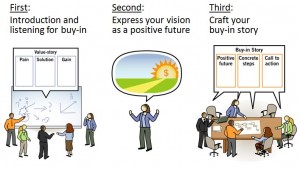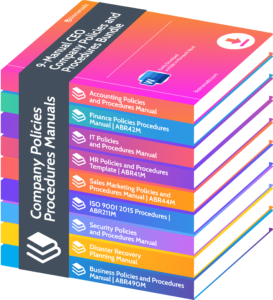Methods Vs Methodology

Methods and methodology are often mistaken for the same thing. But they’re actually two distinct aspects of research. Methods involve the specific techniques to collect and analyze data. Methodology is the overall framework guiding the research approach. Understanding the difference is critical for effective research. Methodology is the intellectual basis for methods. It’s a systematic framework that helps researchers design their study, form hypotheses, choose methods, analyze data, and draw conclusions. It includes philosophy, theory, paradigms, perspectives, and ethics. Let’s look at methods vs methodology.
Defining Methods and Methodology
Methods and methodology are important parts of research and studying. Both have a major job in the data collecting and examining process, yet they are different. Methods are the precise techniques and steps used for research while methodology is the overall design and approach used to do the study.
Methods are the practical applications of theory. Surveys, interviews, experiments, and observations are all methods. The selection depends on the nature of the research question, resources, and ethics.
Comprehending both methods and methodology is essential for successful research. Ignoring the distinction can lead to flawed results. Researchers must thoroughly examine different methodological approaches to their objectives. This will enable groundbreaking discoveries and meaningful contributions to knowledge.
To understand the contrast between methods and methodology, let’s have a look at their components:
| Component | Methods | Methodology |
|---|---|---|
| Definition | Specific techniques and procedures used | Overall framework and approach employed |
| Purpose | Collect and analyze data | Conduct the study |
| Examples | Surveys, experiments, interviews | Quantitative or qualitative research |
| Flexibility | Can vary depending on the research question | More structured and consistent |
| Application | Applied within a specific research project | Applicable across multiple projects |
Methods give specific tactics to get data, while methodology gives a wider view by explaining how those tactics fit into the research. It helps researchers create and organized plan to direct their investigation, which keeps their work consistent.
The difference between methods and methodology is not a new concept; it has been around since the beginning of scientific exploration. Karl Popper and other scholars pointed out the importance of distinguishing between individual methods and bigger methodologies to make sure scientific practice is reliable.
To sum up, methods refer to certain techniques done in a study, and methodology covers the broader structure leading the study. Knowing this distinction is essential for researchers when creating their studies as it lets them organize, stay consistent, and make sure their work is valid.
Differences between Methods and Methodology
Methods and methodology are two words you hear in research and educational conversations. But they have different meanings and functions. Let’s look at the differences in a table.
| Differences between Methods and Methodology |
|---|
| Definition: Methods are techniques to collect data or info. Methodology is the approach used for research. |
| Usage |
|---|
| Methods are used during research projects. They involve techniques to gather data or do experiments. |
| Components |
|---|
| Methods are about tools, measurements, and analysis. Methodology is theory, research design, and ethics. |
By examining these features, researchers can understand their roles better. It’s important to choose the right methods and have a strong methodology to meet objectives and add to knowledge. It’s like the difference between a cat’s meow and a lion’s roar – a cute thing and a potential danger.
Importance of Understanding Methods and Methodology

Buy-in Methodology
Comprehending methods and methodology is essential for conducting rigorous research and gaining meaningful outcomes. It’s like having a toolbox full of hammers and then using a banana to fix everything! Knowing methods gives researchers the power to pick the suitable approach for their study, and understanding methodology ensures they stick to principles and guidelines in their research design.
Moreover, familiarity with data collection techniques, such as surveys, interviews, or observations, allows researchers to avoid potential biases or limitations. Furthermore, understanding these fundamentals enables readers to evaluate the strength of findings and judge the appropriateness of the chosen approach.
Johnson et al. found that researchers who understood both methods and methodology were more likely to get recognition in their respective fields. This emphasizes the practical and professional benefits of knowing the basics of research.
Having a deep understanding of methods and methodology is vital for making informed decisions, producing reliable results, maintaining academic standards, and communicating effectively within academia. It enables researchers to contribute valuable insights to their fields of study.
Application of Methods and Methodology
Applying methods and methodology to research and analysis is key to getting accurate, reliable results. Systematic use of these approaches aids researchers in gathering data, drawing conclusions, and making informed decisions based on evidence.
Research design is necessary to determine the right methods and techniques to use in a study. It outlines the scope, objectives, and data collection strategies. Data collection entails gathering info through surveys, interviews, observations, or experiments. Doing this ensures adequate and relevant data is obtained for analysis.
Data analysis involves organizing and examining collected information through statistical tools or qualitative methods. Analysis reveals patterns, trends, and relationships, yielding meaningful insights. Result interpretation involves drawing conclusions from the analyzed data and presenting findings clearly.
Interestingly, methods and methodology have evolved with time and tech developments. New tools and techniques have been introduced that boost research capacity and enable more precise analysis (Source: Association for Computing Machinery). Get ready for a wild ride exploring methods and methodology – just don’t try this at home!
Examples of Methods and Methodology
It’s key to comprehend the contrast between methods and methodology in research and academia. Methods refer to certain techniques used to collect and evaluate data, while methodology is the overarching approach guiding the research process. Let’s check out some real-life examples.
Examples of Methods and Methodology:
| Study | Methods | Methodology |
|---|---|---|
| A quantitative survey assessing customer satisfaction | Administering questionnaires | Positivist approach |
| An ethnographic study exploring cultural practices | Participant observation | Interpretive framework |
| A laboratory experiment investigating memory retention | Conducting memory tests | Experimental design |
These examples show how different research studies use various methods depending on their methodology. A quantitative survey on customer satisfaction utilizes administering questionnaires and follows a positivist perspective.
On the other hand, and ethnographic study exploring cultural practices involves participant observation within and interpretive framework. Lastly, a laboratory experiment examining memory retention relies on conducting memory tests and takes and experimental design approach.
It’s essential to choose methods and methodology that match the objectives, research questions, and resources available. This will help researchers properly address their inquiries and attain reliable outcomes.
Moreover, understanding the difference between methods and methodology aids researchers plan and carry out studies better. It helps them make informed decisions regarding data collection and analysis, ultimately leading to reliable results.
Methods Vs Methodology
We have looked into the difference between methods and methodology in research. We have studied their meanings and details that separate them. Now, let’s draw a conclusion and summarize what we learned.
Methods are techniques and procedures used in a study or experiment. They are actually done actions for collecting and analyzing data. On the other hand, methodology is the frame in which these methods work. It involves the theories, assumptions, and overall approach taken by researchers.
Methods tell us “how” to do research, and methodology tells us “why” and “what”. Without understanding and using methods correctly within a suitable methodology, research will be weak and unreliable. Over the years, scholars have struggled to find the right balance between these two. As new theories come out, methodologies evolve.
It is very important for researchers to understand this distinction. This way, they can design studies that make a real contribution to their area of research. By matching their methods with a sensible methodology, they can improve the credibility of their results and build strong foundations for future studies.
Frequently Asked Questions

1. What is the difference between methods and methodology?
Methods refer to the specific techniques or procedures used to collect and analyze data in a research study. Methodology, on the other hand, encompasses the overall approach, framework, or theoretical perspective guiding the research.
2. Can methods be used interchangeably with methodology?
No, methods and methodology are not interchangeable terms. While methods are the tools used to gather data, methodology encompasses the broader theoretical and conceptual framework guiding the research process.
3. How do methods and methodology relate to each other in research?
Methods are specific techniques employed within a chosen methodology. The choice of methods is driven by the underlying research approach or methodology, which provides the overall strategy and direction for conducting the study.
4. Can you provide examples of research methods and methodology?
Examples of research methods include surveys, interviews, experiments, and observations. Methodology examples can include qualitative, quantitative, or mixed methods approaches, as well as specific theoretical frameworks such as grounded theory or phenomenology.
5. Is one more important than the other – methods or methodology?
No, both methods and methodology are equally important in research. Methods provide the specific tools to collect and analyze data, while methodology ensures that the research study is conducted within a robust framework and aligns with the overall research goals.
6. How should I choose the appropriate methods and methodology for my research?
Choosing the appropriate methods and methodology depends on various factors such as research aim, research questions, available resources, and data type. It is essential to thoroughly evaluate these factors and select methods and methodology that best suit the research objectives.
















Leave a Reply